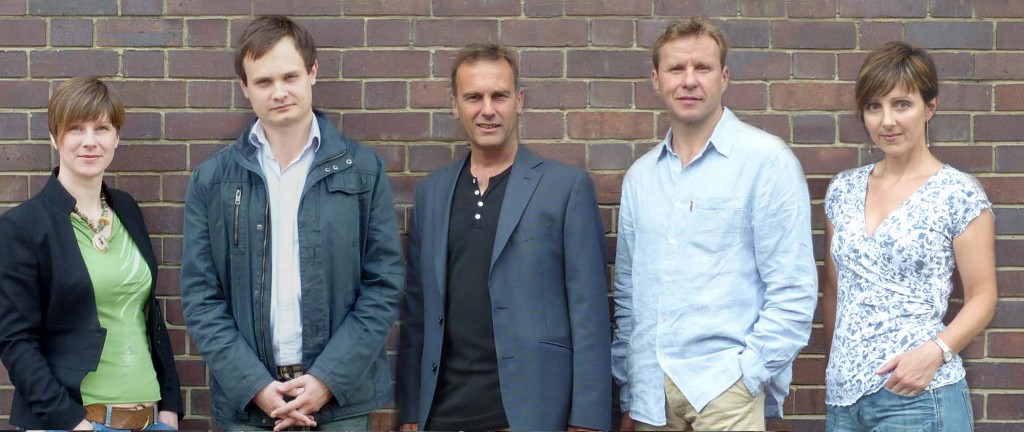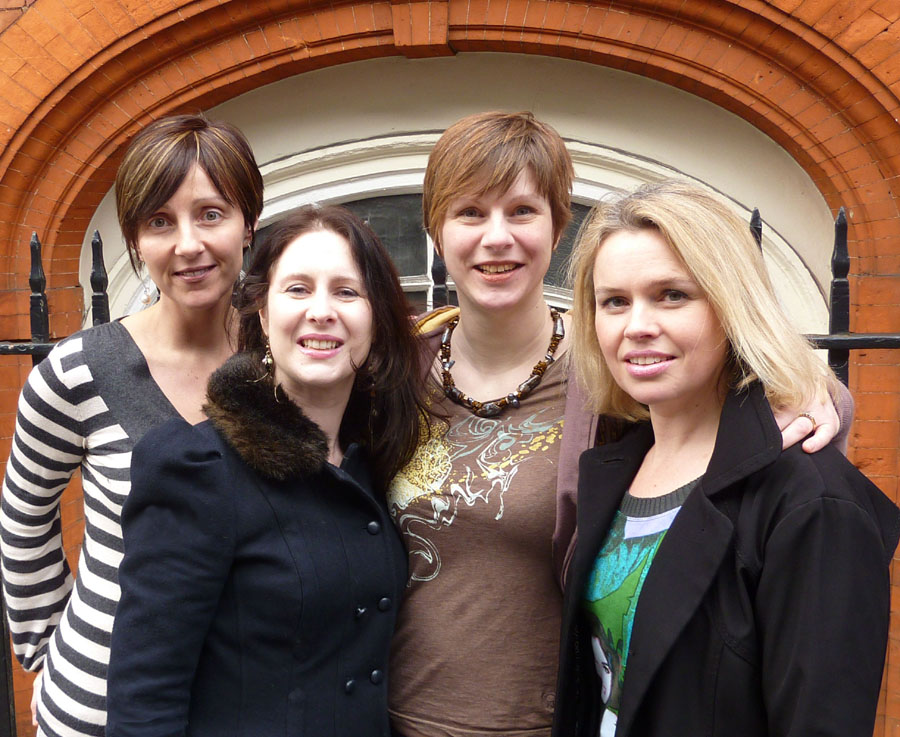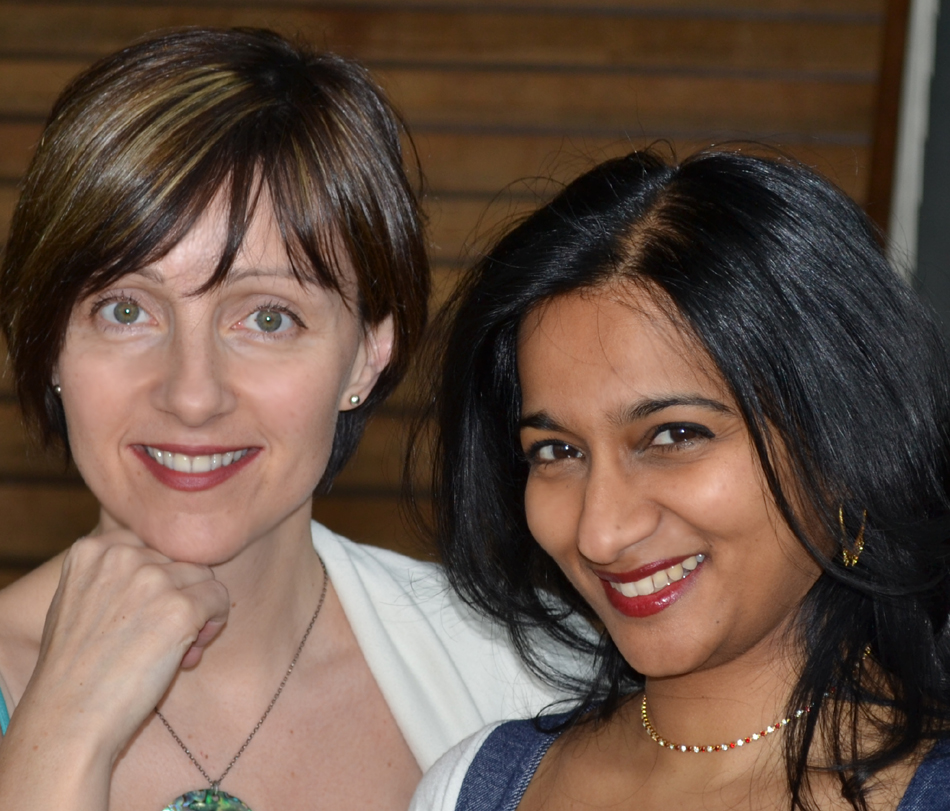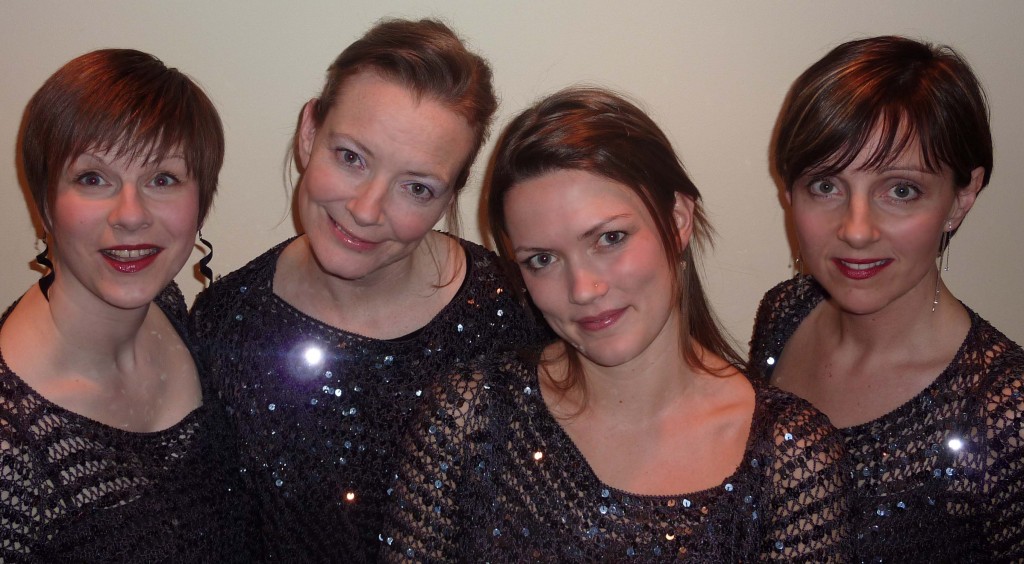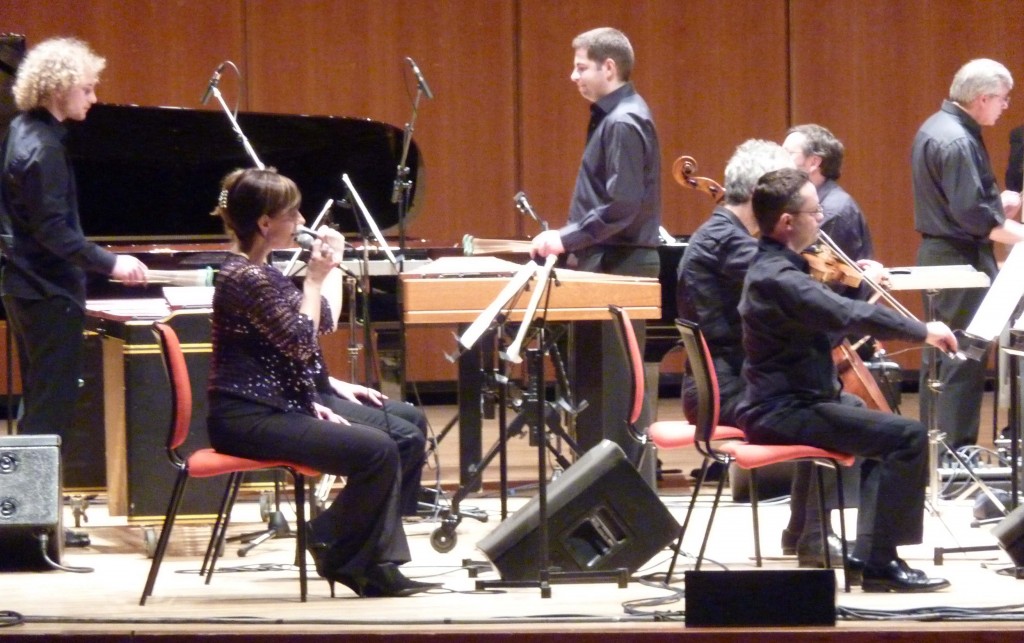Synergy represented by:

Clockwise from left: Heather Cairncross, Micaela Haslam, Rachel Weston, Caroline Jaya-Ratnam
“This was to be Caroline Jaya-Ratnam’s first project with Synergy Vocals – as a singer, that is. Caroline was recommended to me as being a very brilliant pianist (which she is) who would be able to sight-read just about anything in auditions (which she could). What none of us realised was that she also has a lovely singing voice, perfect pitch and high notes that only dogs can hear! This was discovered by accident during recent Synergy auditions when Caroline was accompanying. She was given a piece to play which had an obbligato flute part. It wasn’t physically possible to play both accompaniment and flute part, so she sang the flute part quietly – in a lovely straight, easy tone – just what I was looking for. We ended that day with a singing audition for Caroline and she got the job!
The only thing that we (Caroline included) couldn’t be sure of was her vocal stamina, as she hadn’t really sung in public since her university days. Tehillim is quite a relentless sing and, for these two concerts, we also had a new piece of transcribed Cameroon music – very high and very repetitive. It’s not just a question of doing the concerts, either. There were many hours of rehearsal involved for the whole ensemble, which meant that we had to sing the pieces through time and time again, over several days. Added to all that, about a week or so before we went to Amsterdam, we discovered that Steve Reich was going to be there. No pressure then! What can I say? Caroline did brilliantly. I don’t think she put a note wrong during the entire week, and she was a delight to have on tour.
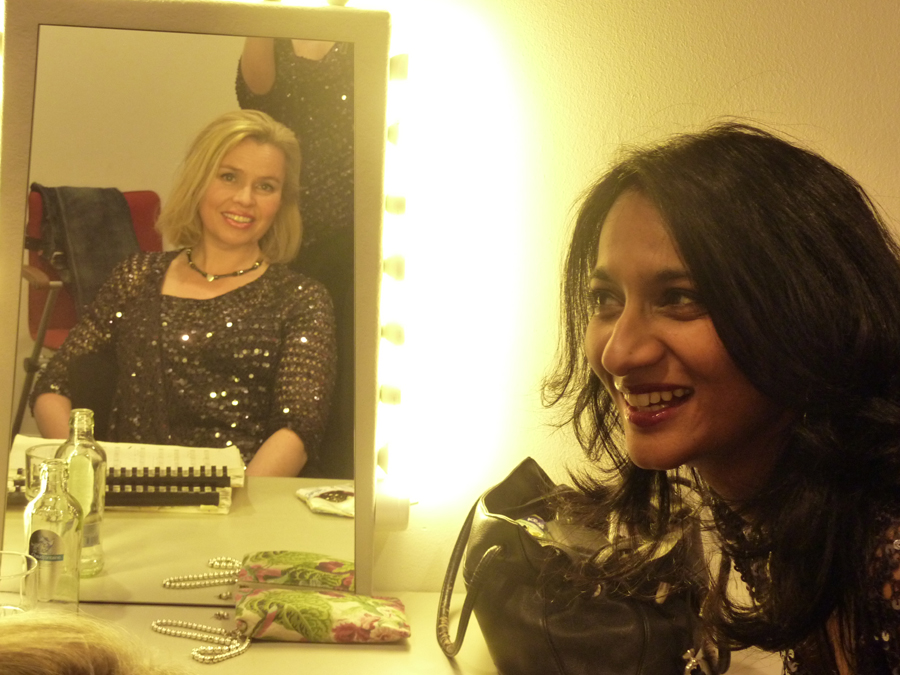
Rachel & Caroline in our Eindhoven dressing room
This was also the first time we’d worked with Clark Rundell, who is just adorable. He couldn’t have been more charming and thoughtful. Added to this, he was totally prepared, delightfully accurate, clear, consistent, and enthusiastic. Tehillim is a notoriously terrifying piece to conduct, but Clark’s performances exuded enjoyment and energy. We’re already looking forward to singing You Are (Variations) with him (and Britten Sinfonia) at the Barbican in May.

Clark introduces 'Monts Mandara' to the audience
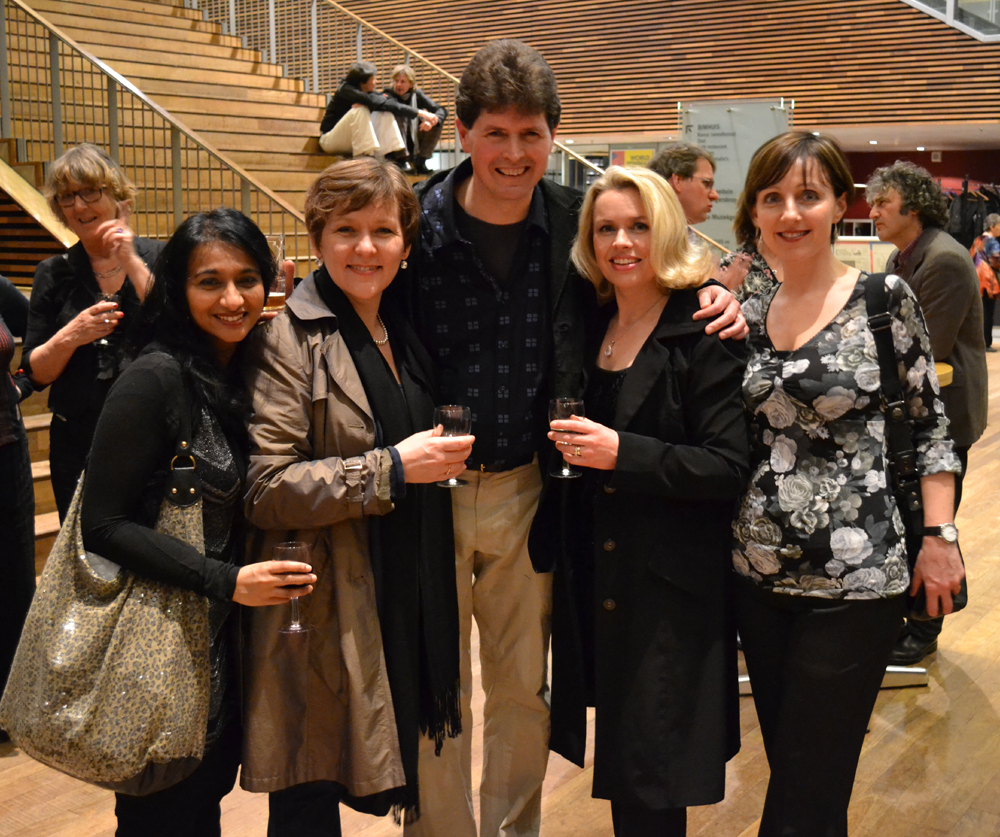
Clark Rundell and the team
Coincidentally, Julia Wolfe was also in town for her new piece Combat de Boxe – music to a silent film by Charles Dekeukeleire about a boxing match. For years, I’ve felt as though I’ve known Julia, through hearing Steve Reich talk about her (and her husband, Michael Gordon), and having sung Shelter – the piece she wrote with Michael and David Lang. She clearly felt the same way, and we really enjoyed catching up properly – a kindred spirit, I felt.

Muziekgebouw & Movenpick Hotel
As usual, we were staying at the Mövenpick, next door to the Muziekgebouw. It’s a wonderful hotel (best breakfast in town!) with amazing views, and the walk to the venue is approximately 30 seconds! This quiet part of town with such a variety of unusual backdrops, indoors and out, was the ideal place to take some group photos. It’s always a nightmare trying to get people together in London for photo shoots, so whenever possible we try to organise them on tour. We spent a very useful hour or so taking a zillion pics for perusal and editing at a later date. Where would we be without digital photography?
Working with Asko feels like coming home. As usual, the percussionists are the people we know best (we’re usually on a riser at the back of the stage and the percussionists are often just in front of us), and they’re all adorable. In Monts Mandara (the Cameroon piece), many of our complicated rhythmic patterns were doubled on mallet instruments and we had great fun with our little “duets”.

Screen on a stage on a screen
Our first concert was in Eindhoven. We’d been given train tickets from Amsterdam, but none of us knew about the new rule whereby you have to have photo ID on trains. Fortunately, we managed to blag our way out of the situation on the way there, but we made sure we sat close to Rogier on the way back. If only all producers were like Rogier van Splunder – equal parts personable and professional – perfectly efficient, with a delightful lack of pretentiousness or self-importance. I say this mostly because he organised the most delicious Indonesian buffet between rehearsal and concert in Eindhoven. How to keep a bunch of musicians happy! At the same time as our concert in Eindhoven, Steve Reich was making an appearance in Amsterdam in a programme that started with Clapping Music. His performance was relayed onto a screen at the back of our stage, so that both concerts could start the same way. It was a good idea and worked well.
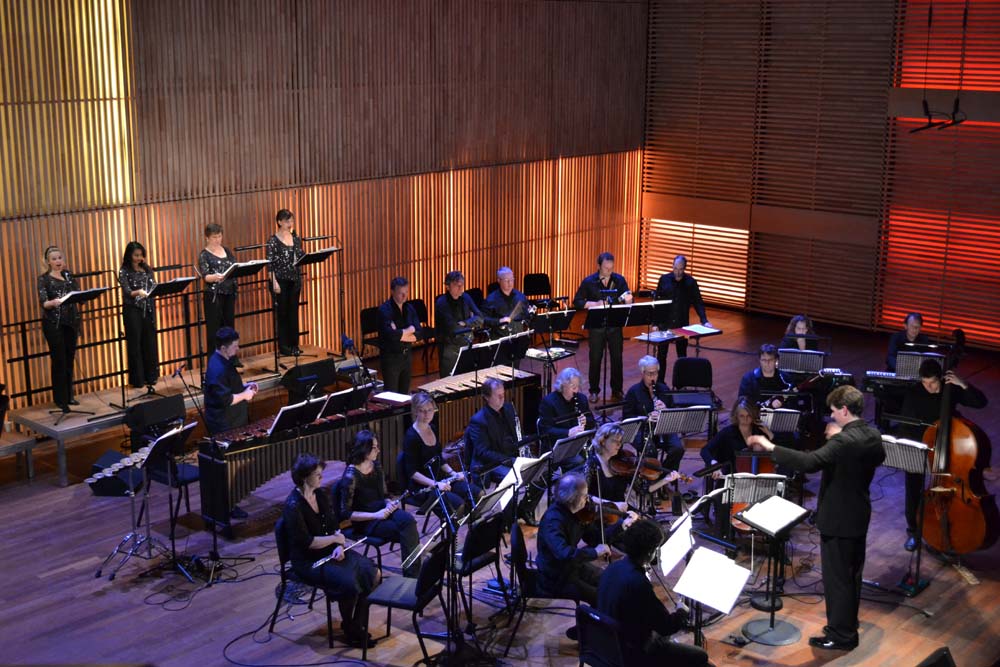
'Tehillim' in concert
The second concert (in Amsterdam) was the more high-profile event. All the composers were there, and Tehillim was to be accompanied by a light show by Carel Kuitenbrouwer (you can see/hear the concert on You Tube – type in “Tehillim + Muziekgebouw” or click on the link on our “Breaking News” page). Steve, happily, was delighted with our performance and Caroline was given the seal of approval.
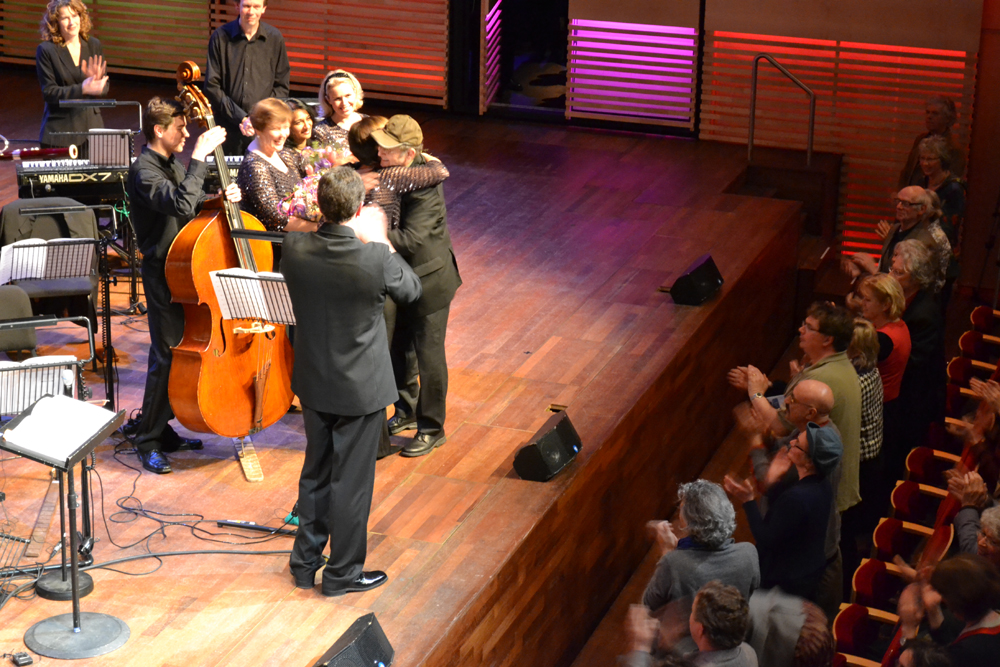
A nice hug from Steve
One thing I’m always aware of in Amsterdam is the generosity of colleagues. Reinbert de Leeuw (conductor) was in the audience. Claron McFadden (my favourite soprano) and Louis Andriessen’s assistant, Mirjam, were also there to support us. I know that Louis would have come too but he was away collecting his Grawemeyer award. After the concert, many of the players stayed behind for a drink in the bar, and we had a great time.
Apart from playing brilliantly, Asko were an absolutely joy to work with. It seems to me that they have got their music-making environment just right. There is a real pride and enthusiasm in their work. It’s such a shame that professional music-making in Holland has this dark financial cloud hovering overhead at the moment. We can only hope that the powers that be see sense and make sure that ensembles such as Asko continue long into the future. They are an inspiration.”
Micaela
